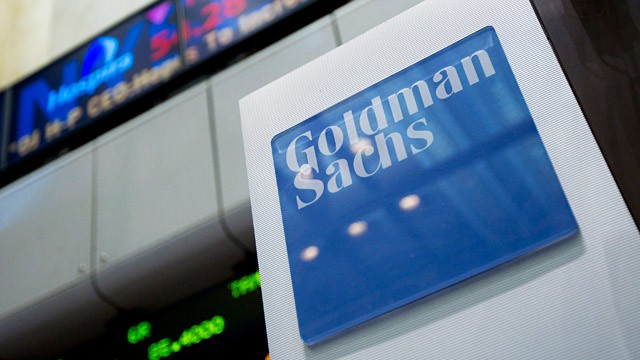by Ben Carlson, A Wealth of Common Sense
In an interview earlier this week I was asked a great question about the counter-intuitive nature of investing. The question was basically, “How can investors learn to swallow their pride to earn satisfactory, but above average returns while giving up on the chance to earn extraordinary returns?”
This is especially difficult for those who work in the financial industry because we’re a competitive group. For individuals, the question you have to ask yourself is this: Do I need to shoot for extraordinary returns to achieve my goals? It’s counter-intuitive because an exclusive focus on earning extraordinary returns so often results in below average performance.
Trying to knock it out of the park at all times can lead to poor habits in your investment process. I just finished the book The Power of Habit by Charles Duhigg, who explains why this is the case. The reason habits, both good and bad, exist is because the brain is constantly looking for ways to save energy. Habits allow our mind to rest more often because our actions become almost second nature. What gets people in trouble is that we usually default to poor habits.
My favorite example in the book tells the tale of former NFL coach Tony Dungy. When he was an assistant coach, Dungy was constantly passed over for head coaching jobs. In part this had to do with his philosophy, which was too simple for many organizations:
Part of the problem was Dungy’s coaching philosophy. In his job interviews, he would patiently explain his belief that the key to winning was changing players’ habits. He wanted to get players to stop making so many decisions during a game, he said. He wanted them to react automatically, habitually. If he could instill the right habits, his team would win. Period.
“Champions don’t do extraordinary things,” Dungy would explain. “They do ordinary things, but they do them without thinking, too fast for the other team to react. They follow the habit they’ve learned.”
Dungy was finally hired by the Tampa Bay Buccaneers and it only took him a few years to turn around what was once the laughing stock of the league. The players bought into his philosophy, but it seemed to breakdown in big games:
“We would practice, and everything would come together and then we’d get to a big game and it was like the training disappeared,” Dungy told me. “Afterward, my players would say, ‘Well it was a critical play and I went back to what I knew,’ or ‘I felt like I had to step it up.’ What they were really saying was they trusted our system most of the time, but when everything was on the line, that belief broke down.”
Dungy was fired by the Bucs after a few consecutive losses in the conference championship game (they won it all with Jon Gruden the very next year), but eventually went on to win a Super Bowl with the Indianapolis Colts, who finally trusted his philosophy in the big games.
There are plenty of financial lessons we can learn from Dungy’s philosophy:
- Investors assume they need to do extraordinary things to succeed, but they do so at the expense of the ordinary things which are so important, yet often over-looked.
- Having a solid process in place that allows you to make the right decisions without thinking about them is such an unbelievably huge advantage when dealing with the inherent uncertainty in the financial markets.
- The inflection points in the markets are where the biggest mistakes are made by investors. Duhigg says in the book that, “willpower becomes habit by choosing a certain behavior ahead of time, and then following that routine when an inflection point arrives.”
- Trying harder doesn’t always lead to better results.
- Making fewer decisions under stressful situations is a net positive.
- You can’t pick and choose when to follow your system. As long as you make good decisions ahead of time you should rarely, if ever, override a good process.
- The learning process never stops. Even the very best athletes in the world can still improve their game.
Dungy said that he wasn’t trying to completely change the players on his team. At that stage of their career it would make little sense to go for a complete overhaul. What he was trying to do was instill a process that would allow them to make better decisions with the talents they already possessed. I think that’s a worthy goal when trying to improve your investment process, as well.
Source:
The Power of Habit: Why We Do What We Do in Life and Business
Further Reading:
A Portfolio Pre-Mortem
The Problem With Intuitive Investing
Now here’s what I’ve been reading this week:
- A classic Jason Zweig speech: Fat tails, thin ice (Jason Zweig)
- How The Godfather explains finance (Malice For All)
- What’s the best charitable cause in the world? (Atlantic)
- “You are the equity risk premium.” (Irrelevant Investor)
- What climbing a mountain can teach you about business (Carl Richards)
- 3 advantages of low frequency trading (Cordant)
- Josh Brown with an excellent piece with the pros and cons of diversification (Reformed Broker)
- Understanding how the limits of arbitrage and behavioral finance affect the markets (ETF.com)
- 13 practical ideas to make better decisions (Farnam Street)
- The sad state of the financial web (Fund Reference)
- One of the greatest investment passages every written (Investor Field Guide)
Subscribe to receive email updates and my quarterly newsletter by clicking here.
Follow me on Twitter: @awealthofcs
Copyright © A Wealth of Common Sense













